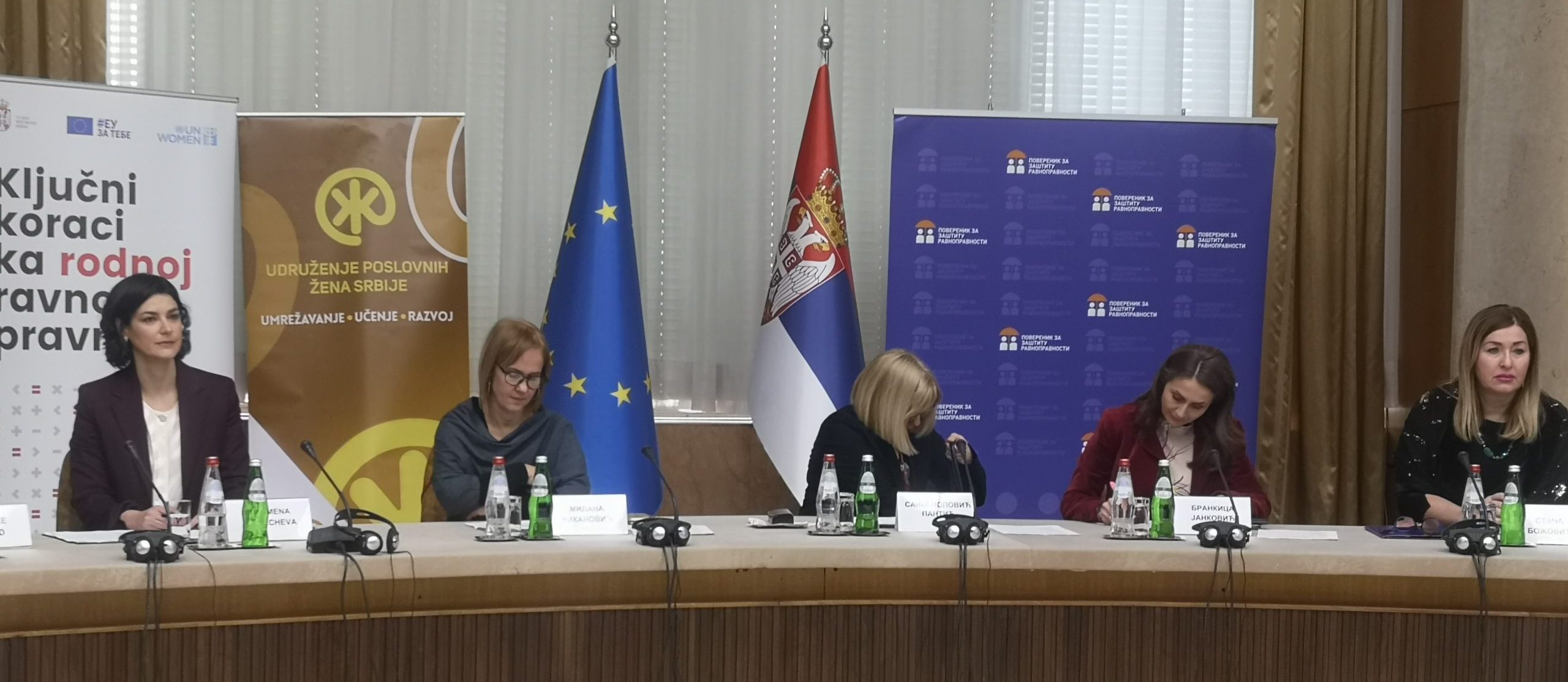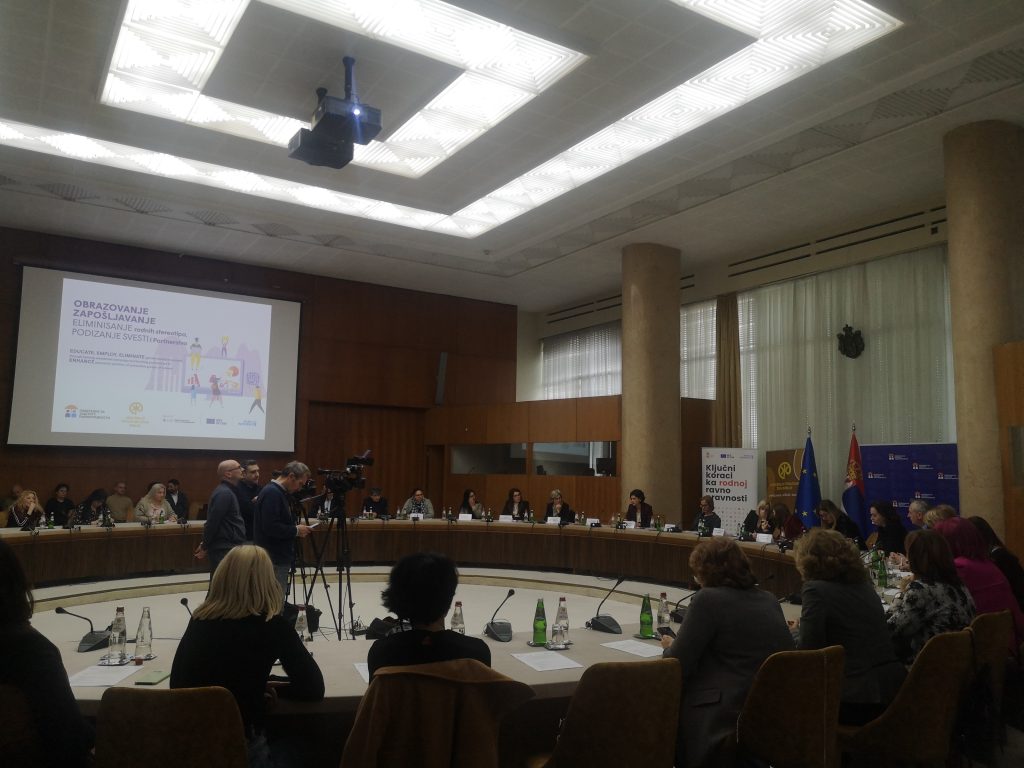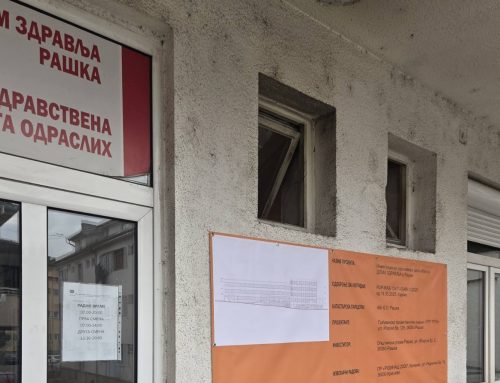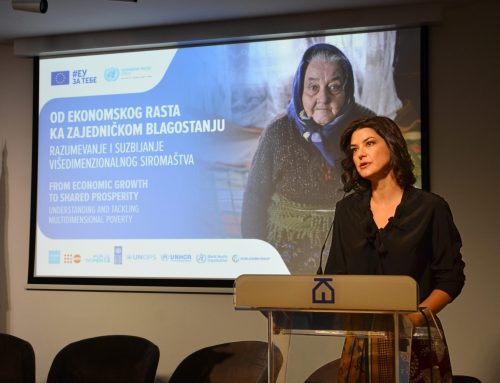Active labour participation of women benefits the society as whole – this is the message of the conference for the occasion of completing the project “Education, employment, elimination of gender stereotypes, raising awareness and partnership”.
During the one-year duration of this project, the organised training activities enabled more than 200
women from wornable groups to acquire skills and establish themselves on the labor market. They were trained to work on the construction site, in the carpentry workshop, to drive excavators, skippers…
The special task of this project is to increase the capacity of women for (self)employment by acquiring knowledge and skills in atypically female, deficient and well-paid occupations of construction and information and communication technologies. Thanks to trainings and internships in construction companies, these women got a better chance for employment.
Plamena Halacheva, Deputy Head of the EU Delegation to Serbia, addressed the final conference, held in the Palace of Serbia. She pointed out that all research and economic studies show that companies that embrace diversity are more successful. This is true in business, politics and society as a whole. “Look at our societies. Diversity is a fact. But whether diversity is reflected in institutions and businesses is an active choice”, she said.
„The promotion of gender equality and women’s participation in all spheres of economic, political and social life is to the benefit of society as a whole”, stressed Halacheva.
“This is not just an issue of equal rights. It is not just an issue of achieving fairness for women. It is working to avoid a clear waste of human capital that we can no longer afford. Because when women are not fully empowered, our collective potential in the world is not fully used. We are all different, we are all equal; and all of us have a special contribution to make in our societies”, she concluded and reminded that 2023 is precisely the European year of skills.
Gender stereotypes, bias and discrimination, are barriers many women face when pursuing careers in male-dominated sectors. This is especially true for minority women as being a woman and from a marignalised group matches two elements of prejudice that are extremely difficult to face if combined together, as pointed by Halacheva.
Commissioner for Gender Equality, Brankica Janković, said that a positive trend can be observed in Serbia – more and more women are graduating from engineering faculties, one in four, which is better than statistics in the EU, where one in five women becomes an engineer.
“There is nothing unnatural if you see a woman in the police, the army, a firefighter, in an excavator, a truck driver. Just as there is nothing unnatural in seeing a male educator. There is nothing strange to see a woman in uniform, it is only strange that they are not in the highest decision-making positions. Gender should not play any role in the choice of profession – skills and knowledge should be the main ones in the labor market”, said Janković. The most important solution in deconstructing gender stereotypes is education, the commissioner concluded.
“Education, employment, elimination of gender stereotypes, raising awareness and partnership” is a project aimed at reducing gender stereotypes in social and economic life and increasing the participation of vulnerable groups of women in the labor market. The activities were carried out by the Association of Business Women of Serbia (UPŽ), supported by the United Nations Agency for Gender Equality and Women’s Empowerment (UN Women) as part of the project “Key steps towards gender equality”, financed by the European Union. The EU allocated two million euros for this project.





